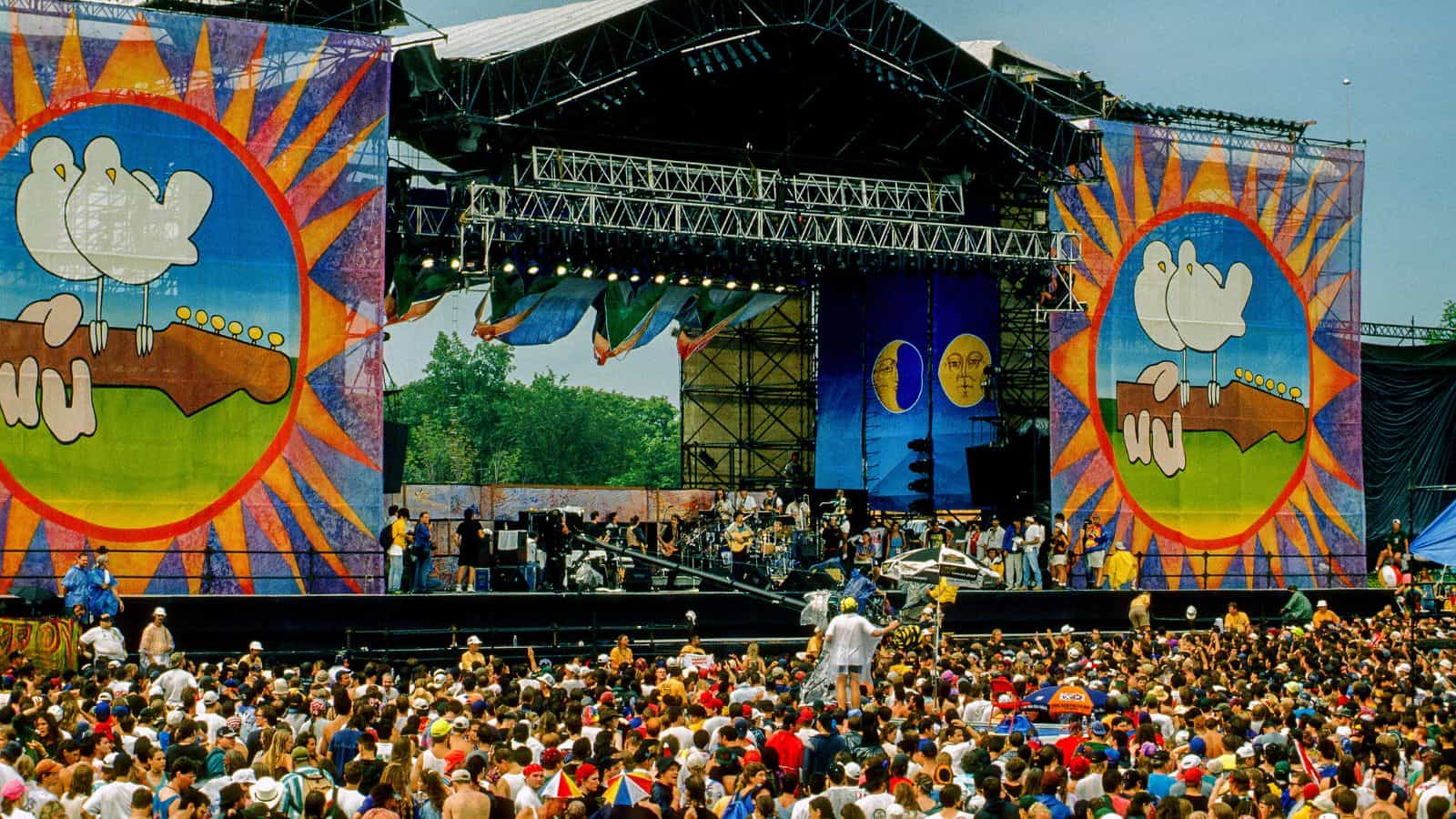The 1970s saw several events play out on the world stage, including wars, new music scenes, the energy crisis, and rising awareness of environmentalism and feminism. Technological and scientific advances occurred as violence broke out in the Middle East, Africa was further decolonized, and the postwar economic boom ended. Here are 17 things you may have forgotten happened in the 1970s.
The Rise of Disco

The disco movement began in nightclubs in the early 1970s in Philadelphia and New York City and soon emerged as a defining sound and culture of the 1970s. Artists including the Bee Gees, ABBA, Earth, Wind & Fire, and Diana Ross released hit songs that defined the era, and by the late ‘70s, most cities in the U.S. had thriving disco scenes. But in 1979, a backlash against disco culminated in Disco Demolition Night on July 12, 1979, which sharply declined disco’s popularity. However, the genre remained popular in Europe and later shaped the emerging electronic dance music scene, including house music.
The Watergate Scandal

The Watergate Scandal started when five burglars were arrested at the Democratic National Committee headquarters in Washington, D.C., on July 17, 1972. Britannica writes that President Richard Nixon and his administration’s attempts to cover up their involvement in the break-in were uncovered in investigations and subsequent likely impeachment and conviction before Nixon resigned on August 9, 1974. The scandal led to the suffix -gate being added to subsequent scandals and led to a decrease in the public’s trust in politicians.
The Vietnam War’s Conclusion

The Vietnam War lasted almost 20 years, from 1955 to 1975, and was fought by the Soviet and China-backed North Vietnam and the U.S.-led South Vietnam. This proxy war between the U.S. and the Soviet Union led to an estimated 3.4 million total deaths and only started to wind down in the 1970s. According to History, the U.S. and North Vietnam concluded their final peace agreement in January 1973. The war between North and South Vietnam continued until April 30, 1975, when DRV forces captured Saigon. North and South Vietnam were unified into the Socialist Republic of Vietnam the following year.
The Energy Crisis

The energy crisis of the 1970s lasted from 1973 to 1980. The Western world faced significant petroleum shortages and high prices and was soon forced to rely on imports from the Middle East. Two crises during this period, the 1973 Yom Kippur War and the 1979 Iranian Revolution, worsened the shortage and led to changes in American lifestyles, including adopting daylight saving time.
The Birth of Personal Computing

The first commercially successful microprocessor, the Intel 4004, was introduced in 1971. This ushered in a wave of the first personal computers that would change the office landscape, with the introduction of seminal computers like the Altair 8800 and Apple II. The early computers of the 1970s paved the way for the digital revolution and mass ownership of computers in the 1980s and 1990s.
Environmental Activism Takes Root

In the 1970s, the public and politicians developed a growing awareness of the environment and the need to safeguard the natural world. The first Earth Day was celebrated in 1970, beginning widespread environmental awareness. Significant legislation was passed in the 1970s, including the Endangered Species Act of 1973 and two amendments to the Clean Air Act in 1970 and 1977.
The Feminist Movement Gains Momentum

The 1970s were a key decade for the feminist movement. In 1973, the Supreme Court ruled that the U.S. Constitution protected the right of women to have an abortion. The BBC notes that the case created the “trimester system” that allowed an absolute right to abortion during the first three months of pregnancy. Institutions and laws, including the National Organization for Women, were also established during the ‘70s to support women’s rights.
The Advent of Video Gaming

The release of the first commercial arcade video game, Computer Space, in 1971 started the rise of video games as a cultural phenomenon. Computer Space was followed by the iconic Pong in 1972, and home video game consoles like the Magnavox Odyssey soon followed.
The Golden Age of Hollywood Blockbusters

The ‘70s were a golden age for blockbusters, with the release of groundbreaking films like Jaws (1975) and Star Wars (1977). These blockbusters impacted the film industry and popular culture like no other films before them, leading to iconic franchises that are still popular today and the rise of directors like Steven Spielberg and George Lucas.
The Punk Rock Explosion

Rateyourmusic argues that punk rock formed in the U.S., U.K., and Australia in the mid-‘70s as a response to commercialized, sentimental rock music. Groups like the Ramones, Sex Pistols, and The Clash led the movement. The punk scene had a huge cultural impact, influencing fashion, music, and art around the world, leading to hardcore punk and post-hardcore.
Decolonization and Global Shifts

Significant moments of decolonization occurred around the world in the ‘70s, including the independence of Angola and Mozambique from Portugal. Decolonization led to a shift in geopolitics and global power dynamics, with former colonies gaining independence and asserting their presence on the world stage.
The Rise of New Age Movements

New-age spirituality and alternative religions grew in popularity in the ‘70s. Britannica contends the New Age movement “looked forward to a ‘New Age’ of love and light and offered a foretaste of the coming era through personal transformation and healing.” Key figures of the time included David Spangler and Carlos Castaneda. The movement petered out in the 1980s, being “derided for its acceptance of unscientific ideas and practices.”
The Expansion of Cable Television

Cable television was introduced and expanded throughout the 1970s, offering more channels and specialized content than ever before. Notable and highly acclaimed networks, including HBO and ESPN, were launched, with HBO demonstrating “the power of satellite technology by broadcasting the 1975 world heavyweight boxing title match between Muhammad Ali and Joe Frazier live from Manila, in the Philippines. This event marked the first time that American television viewers were able to watch a major sporting event as it occurred halfway around the world.”
Groundbreaking Music Festivals

Iconic music festivals of the ‘70s included the Ozark Music Festival of 1974 and the Isle of Wight Festival of 1970. These festivals were groundbreaking, with record numbers of attendees, inspiring the founders of the Glastonbury festival with their anarchistic and free nature.
The Gay Rights Movement Advances

The Stonewall riots of 1969 led to the first gay pride marches of the early 1970s. The decade saw key victories and challenges for the LGBTQ+ community, with homosexual decriminalization laws and ordinances passed by several cities, states, and countries. Openly gay people also began to be elected to political office in the U.S., including Harvey Milk and George Moscone.
The Cold War Intensifies

Significant Cold War events in the 1970s included détente, the SALT treaties, and the Soviet invasion of Afghanistan. These events significantly impacted U.S.-Soviet relations and broader geopolitics, easing tensions and ending the Vietnam War.
The Shift in Automotive Design and Culture

The energy crisis greatly impacted automotive design, necessitating more fuel-efficient and smaller cars. This led to the rise of Japanese automakers, including Toyota and Nissan. The 1970s also began a van customization trend and saw car culture’s influence on cinema and media.
